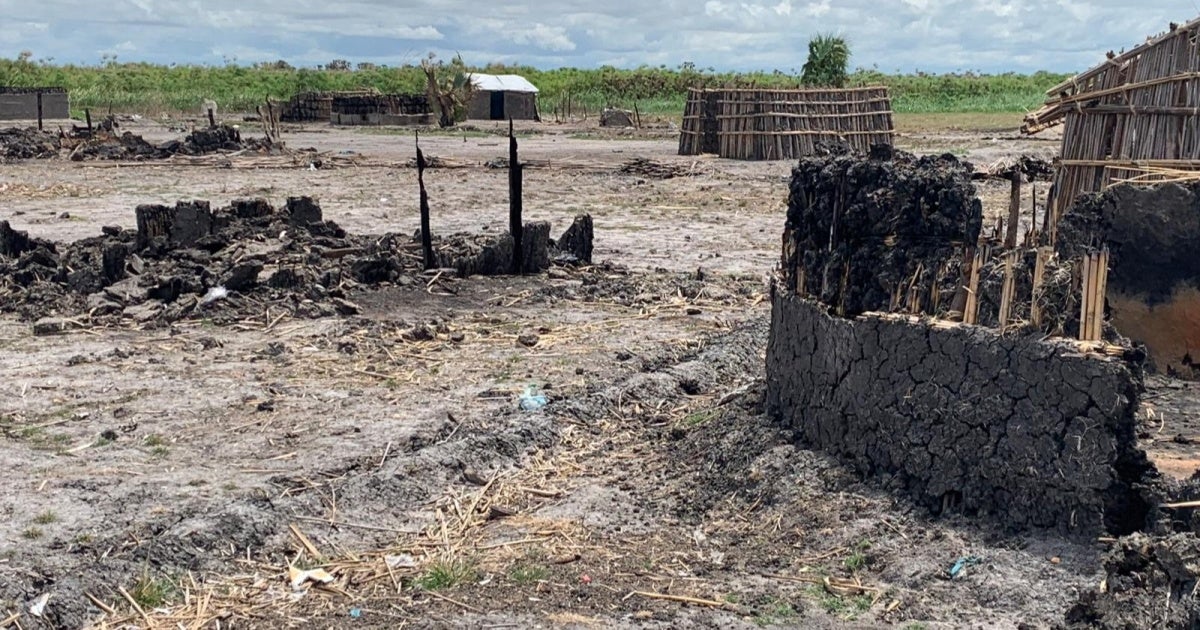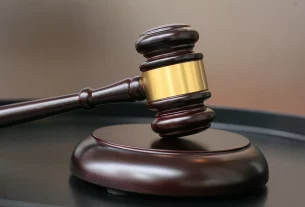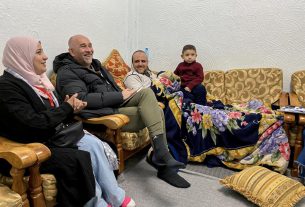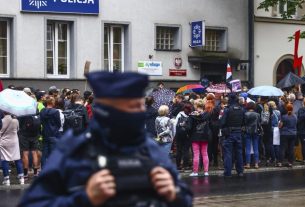- South Sudan’s authorities have not brought to justice those responsible for attacks on civilians three years ago by government forces and allied militias in Leer and other opposition-controlled areas in southern Unity state.
- The lack of meaningful justice for the most serious crimes in Leer and other counties in southern Unity drives new cycles of abuse.
- The government should build on recent efforts to enhance justice in southern Unity and ensure credible prosecutions of those responsible for serious violations of international humanitarian and human rights law in 2022.
(Nairobi) – South Sudan’s authorities have yet to bring to justice those responsible for brutal and fatal attacks on civilians three years ago in southern Unity state, Human Rights Watch said today.
Between February and May 2022, county officials in Koch and Mayendit in Unity state, with the backing of government forces and local militia groups, carried out a series of systematic and coordinated attacks on civilians and civilian property in opposition-controlled territories mainly in Leer and in parts of Koch and Mayendit. Human Rights Watch research bolsters the findings of the United Nations investigations and ceasefire monitors.
“The lack of meaningful justice for the most serious crimes in southern Unity is giving rise to impunity that drives new cycles of abuse,” said Nyagoah Tut Pur, South Sudan researcher at Human Rights Watch. “Survivors of the horrific violence in southern Unity have lived for years with the consequences and deserve justice.”
The government established a commission of inquiry in April 2022 to investigate the Leer violence, but its findings were never made public. The government dismissed officials implicated in the violence in 2024, but no one has been prosecuted. The government should build on recent efforts to enhance justice in southern Unity and ensure credible prosecutions of those responsible for serious violations of international humanitarian and human rights law in 2022.
In May and July 2022, Human Rights Watch interviewed 98 people in Leer county who had been displaced from villages in Leer, Koch, and Mayendit counties. Some were also survivors of previous cycles of violence in Unity state since 2013.
Human Rights Watch found that organized forces including police, army, and wildlife rangers, and local youth militias allied with Koch and Mayendit county officials killed, beat, and raped civilians, and looted livestock and essential goods in opposition-controlled areas in Leer, Koch, and Mayendit between February and April 2022.
The violence was rooted in power struggles between county commissioners of Koch and Mayendit, who oversaw government and allied militia groups, and the Sudan People’s Liberation Army-in-Opposition (SPLA-IO) commanders and allied militia groups. The opposition also controlled key trade routes and markets, denying these county officials access to tax revenue, which compounded political tensions and fueled the violence.
The violence took place 10 months before elections initially scheduled for December 2022, but postponed to December 2024 and then again to December 2026. Human Rights Watch found that the violence appeared to be designed to weaken the opposition and displace populations deemed to be their supporters.
Human Rights Watch researchers found widespread burning and destruction of civilian homes and property in multiple villages in Leer that appeared to be designed to force displacement and discourage returns. Government allied forces and militias also burned children, older people, and people with disabilities in their homes and targeted civilians, especially men and boys who were attempting to flee or hide.
A woman said she saw government-allied forces force four people, including a woman who was deaf and blind and a man with a psychosocial disability, into a home and then set it on fire. She said all four were burned to death. “They stood by the house with a gun and watched it burn to the ground.”
Government-aligned forces also abducted and subjected women and girls to sexual violence. One woman said she saw five men gang rape two teenage girls in Pillieny on April 9, 2022: “When they finished, they left the younger one, age 13, by the roadside because she was heavily bleeding.”
Under international law, governments are obligated to investigate and prosecute serious crimes such as crimes against humanity and war crimes, ensuring victims’ rights to truth, justice, and an effective remedy while combating impunity.
On April 13, 2022, President Salva Kiir established an ad-hoc investigation committee to look into the “incidents in Koch, Leer, and Mayendit,” but the investigation stalled. The committee did not visit Leer until nearly a year after the events. Committee members met with President Kiir in March 2024 to present their findings, however, the committee’s findings have not been made public.
President Kiir subsequently dismissed state and county officials, some of whom were implicated in the abuses documented by ceasefire monitors, the UN Mission in South Sudan (UNMISS), the UN Commission on Human Rights in South Sudan, and the Leer Investigation Committee, but did not specify the reason for their dismissal.
South Sudanese authorities have not initiated any criminal proceedings to bring to justice those responsible for the grave violations in Leer. On March 15, 2025, authorities with the support of UNMISS deployed a mobile court to Leer to address a decade-long backlog of criminal cases in southern Unity state. While the court can hear cases on charges of murder, rape, and other serious crimes, it does not have jurisdiction to prosecute war crimes or crimes against humanity, meaning that justice for the scope and severity of the crimes in Leer in 2022 would be lost.
South Sudan authorities should take concrete steps to ensure accountability and effective remedies for victims of these most serious crimes. South Sudan’s partners should press the authorities to publish and disseminate the Leer investigation findings and ensure there is a credible, independent process to prosecute those responsible for crimes, Human Rights Watch said.
South Sudan’s leaders agreed in 2018 to carry out a comprehensive transitional justice process to address past atrocities. In September 2024, South Sudan’s parliament passed laws to establish a Commission for Truth, Reconciliation, and Healing and a Compensation and Reparations Authority but did not move forward with legislation to set up the hybrid AU-South Sudan court which would try the most serious crimes.
The African Union (AU) and the South Sudanese government should take all necessary steps to ensure that the hybrid court is established and begins work to fulfill its important mandate, Human Rights Watch said.
International partners should continue to provide technical and financial support across these transitional justice mechanisms, while holding the South Sudanese government accountable for its commitments to establish the hybrid court.
Recent political tensions have led to a surge in violence in Upper Nile and Western Equatoria, including indiscriminate aerial bombardments on civilians and their forced displacement. On March 8, 2025, President Kiir pledged not to return the country to war. This pledge should come with practical steps to ensure attacks on civilians and other serious abuses stop, and that credible, independent justice processes move ahead with investigations and criminal prosecutions against those responsible for serious crimes, Human Rights Watch said.
“The unchecked violence in Leer was not an isolated event, but part of a recurring cycle of violence that is fueled by impunity,” Pur said. “South Sudan’s leaders need to provide a meaningful justice response to prevent further atrocities, prosecute those responsible, and ensure that survivors can receive adequate redress and start a process of healing.”
For more details regarding abuses in Leer and southern Unity, please see below.
Conflict Dynamics in Leer
Leer county, the birthplace and stronghold of the Sudan People’s Liberation Army-in-Opposition (SPLA-IO) historical leader Riek Machar, and home to the Dok people (a section of the Nuer ethnic group), has experienced political unrest, insecurity, and humanitarian challenges since South Sudan’s civil war started mid-December 2013.
Both government forces and the opposition SPLA-IO, carried out fierce large-scale attacks and counterattacks in key towns and positions, often accompanied by grave abuses and other disastrous consequences for civilians by both sides.
In April 2022, the Ceasefire and Transitional Security Arrangements Monitoring and Verification Mechanism which monitors South Sudan’s 2018 peace deal documented that commissioners of Koch and Mayendit instigated allied forces, armed youth, and defected opposition soldiers to commit murder, mass rape, and destruction of villages and humanitarian facilities in Leer and Koch between February and April for political and economic reasons. It also found one opposition commander responsible for the violence.
In September 2022, the UN Mission in South Sudan (UNMISS) reported that between February 11 and May 31, 2022, joint government forces and allied militia attacked civilians during operations against opposition groups in Leer and parts of Koch and Mayendit counties, affecting at least 28 villages and settlements. Approximately 173 civilians were killed and at least 44,000 people were displaced.
UNMISS also documented that women and girls were abducted as spoils of war and that 131 were subjected to sexual violence. UNMISS said it also received reports that the opposition force, the SPLA-IO, also killed, injured, abducted, and raped women and girls in Rubkuay, Mayendit county, and in the town of Koch.
UNMISS said that the violence was part of a long term government objective to increase its control in Unity state and mirrored tactics from past violence.
In April 2023, the UN Commission on Human Rights in South Sudan (hereinafter referred to as the UN commission)reported that impunity fuels violence in South Sudan with detailed findings from investigations in Leer. It found that government-aligned forces and affiliated militias committed war crimes including killings, widespread sexual violence such as gang rape and sexual slavery, and use of starvation as a method of war, some of which and may also constitute crimes against humanity. The UN commission found that county officials “characterized the Dok Nuer as allies of ‘the enemy’ Riek Machar, the SPLM/A-IO leader,” and that they “must unite to cleanse the SPLM/A-IO from the area and drive out the Dok Nuer civilians in Leer County.”
Attacks on Civilians, February-May 2022
This section draws on UNMISS, the UN commission, and unpublished Human Rights Watch research from May and July 2022, including interviews with 98 victims and witnesses, and with 22 officials, humanitarian actors, and civil society members. A member of the Leer investigation committee and UNMISS were also interviewed in April 2025.
Unlawful Killings, Beatings, Torture, or Ill-Treatment
UNMISS estimated that government aligned forces and aligned militias killed at least 173 civilians during the 2022 attacks. The UN commission reported that killings were intentional, especially targeting males, and included public executions and killing by immolation. It found strong grounds to conclude that the deliberate killings constituted the war crime of murder and may also meet the threshold for crimes against humanity as they appeared to be part of a widespread and systematic attack on civilians.
Human Rights Watch also documented 48 killings including at-risk populations such as older people, people with disabilities, and children.
Families often left older people and people with disabilities behind, believing that they would be spared but a chief in Gandor said that government forces and aligned militias killed Baad Gatjang a 28-year-old shopkeeper and farmer with a mental health condition: “He was left behind when people fled. They shot him near his grandmother’s house. No one could bury him for two days because people had fled.”
A woman in her 70s with a visual disability was also left behind by her family. “We told the old woman to stay as we thought no one would harm her,” a family member said. “In the evening, I returned and found the house burned and the old lady burned to death.”
Witnesses in Buow told researchers that government forces and aligned militias killed three people: Geah Bul Buoy, a fisherman in his late 50s; 28-year-old Tut Puot Jal, a teacher in Buow primary school; and a blind woman in her late 70s. Witnesses in Yang said they found the bodies of two women in their 80s, Nyanong Row and Duany Deang, burned inside their home following attacks by government forces.
A woman from Adok, who was also gang raped, said she saw public executions by hanging and other abuses: “Those who refused to walk were hanged or beaten. I saw two men hanged from the tree. They were in their 40s. They also hanged two women from a tree; one was my age. An 18-year-old man was beaten severely and left for dead.”
Violence Against Women, Girls
Both UN bodies found that sexual violence was widespread and systematically used as a tactic of war. UNMISS documented 131 cases of rape that included numerous instances of gang rape. The UN commission found that sexual violence was planned and tolerated by commanders and used as a tool to punish the opposing community. It documented that government forces and aligned militias abducted dozens of women, including women who were pregnant and breast-feeding, some for sexual slavery. It also reported that 11 children were abducted.
Human Rights Watch researchers spoke to six survivors of sexual violence and multiple people who had witnessed rape, gang rape, sexual slavery, unlawful killings, and other abuses. Service providers told researchers that girls as young as 8 and women as old as 72 were raped.
One woman in her 50s said that she fled her home in Thonyor and spent four days hiding in the swamps and rivers along with other women. On April 11, 2022, government aligned forces captured her and seven other women as they fetched food and other essential items from their homes.
Two men raped her and then made her carry jerricans of cooking oil and buckets of washing powder 45 kilometers to a government camp in Pilliny. She witnessed and heard about rape, gang rape, and sexual slavery of other women and girls at the camp, including that of her 26-year-old niece:
Women were sitting in groups, some under trees, others in their homes. [The attackers] would just come and pick whoever they wanted. [Their leaders] would not stop them or even advise them to stop what they were doing. I saw six women and a breastfeeding mother being raped…. I met four breastfeeding mothers, whom I knew, three from Yang and one from Thonyor. All of them said they had been in the camp for two days and raped more than once. Every day they were there, anyone could rape them.
The woman from Adok said that on April 9 government allied forces set fire to the reeds where she was hiding and that five of them then gang raped her: “They pinned me down and pointed a gun at me. They didn’t even say a word. They beat me and raped me one after another.”
Another woman said that she was five months pregnant in February 2022 when government aligned forces caught her. They made her carry bags of sorghum from her village in Padeah to their base in Mirmir and beat her with sticks and tree branches, causing her to miscarry.
Destruction and Pillage of Food, Civilian Properties
UNMISS found that joint government forces and aligned militias engaged in widespread pillage and burning of civilian property. In some cases, attackers conducted house to house searches, stole valuables, and then burned dwellings. The UN commission found that government-aligned forces deliberately used starvation as a method of war and that fighters were rewarded with pillaged resources.
Human Rights Watch also found that government forces and allied youth militias burned homes and, in some cases, even entire villages as they moved through the southern part of Leer. People interviewed said that government forces and allied militias burned the food they did not loot. A woman from Rupjiech village said:
They took everything from my house. They took 3 sacks of sorghum, 20 goats, and one bag of maize, and burned my two houses and one kitchen. They also took all my clothes and utensils. They left the house empty. They beat me … and accused me of hiding food. They were hitting me with gumboots, slapping, and kicking me. They then ordered me to carry for them what they had taken from my house to [their base in] Mirmir.
Government and aligned militias stole tens of thousands of cattle and deliberately targeted civilians fleeing with livestock, effectively destroying the community’s livelihood. In mid-May 2022, allied youth targeted Muom, where displaced people had fled, with the purpose of raiding cattle. They also killed 9 civilians and injured 11, including a child. As a direct result of the attacks, many people said they could barely manage to put together one meal a day and others said they were plucking, cooking, and eating water lilies, roots, and wild fruits.
Attacks on Aid
UNMISS found that at least 18 facilities in at least 9 locations providing lifesaving assistance to vulnerable populations were pillaged and/or burned. The UN commission concluded that government-aligned forces pursued a strategy to deprive civilians of assistance and create conditions of starvation and dependence.
Human Rights Watch also documented the looting and destruction of warehouses, stores, and healthcare centers run by aid agencies and spoke to dozens of civilians who were made to carry the looted items to government and allied youth camps and bases. Researchers found that government-aligned militias killed at least two aid workers and injured another.
A local group that provides health and nutrition services said that government fighters ransacked and destroyed eight of their primary health care facilities during the April 2022 attacks.
Three local workers for nongovernmental groups in Leer said that seeing their colleagues killed and injured, as well as the challenging working conditions took a toll on their mental health.
Impunity Unchecked
Despite the gravity of events in Leer, neither the state nor the central government has taken meaningful steps to ensure criminal accountability for those responsible.
The UNMISS-backed peace dialogue meetings, including one in October 2022 involving commissioners from Leer, Koch, and Mayendit, paved way for reconciliation but did not end abuses. By November 2023, attacks on SPLA-IO positions by a splinter group led to renewed displacement and reported arbitrary detention of civilians. The UN commission later warned of ongoing risks due to unresolved power struggles and government efforts to orchestrate defections.
The United Kingdom, European Union, and United States issued sanctions against Gatluak Nyang, Mayendit county commissioner, and Koang Biel, Koch county commissioner. The United States also sanctioned Unity state governor Joseph Nguen Monytuil.
In May 2024, President Kiir replaced governor Monytuil with Justice Riek Bim Top, who implemented a number of rule of law reforms and directed county officials to curb violence or face dismissal.
In June 2024, President Kiir replaced Nyang as commissioner for Mayendit and dismissed Biel from his position in December 2024.
In April 2025, the state government—in cooperation with UNMISS—deployed a mobile court to Leer, to prosecute ordinary crimes and reduce rampant violence and insecurity.
Justice System in Leer
Rule of law institutions in Leer, as in many other places in South Sudan, are largely nonexistent. The police have very limited capacity and there is no prosecutor, judge, or court. Customary authorities handle most matters but in serious cases suspects must be transported to Bentiu, the state capital, for any formal judicial process. A burned and rusted shipping container, which was also the site of a massacre of Nuer men and boys in 2015 by government forces, serves as the prison.
Leer Investigation Committee
The Leer Investigation Committee suffered from similar shortcomings as other government-appointed investigation committees. It did not begin work until March 2023, a year after the events, and although it concluded its report in April 2023, it did not present its findings to President Kiir until March 2024. The committee reportedly recommended, among other actions, removing the officials responsible for abuses from their positions. The findings of the report, however, have never been made public.
UN-led Mobile Court in Leer
On April 15, 2025, the state government—in cooperation with UNMISS—deployed a mobile court in Leer which addressed 57 civil and criminal cases including murder, rape, theft, committed in Leer, Koch, Mayendit, and Panyijiar counties.
While the mobile court provides temporary relief to communities without access to the formal justice system, it does not have jurisdiction to prosecute serious international crimes such as war crimes or crimes against humanity.
A UN official told Human Rights Watch in April 2025 that he was not aware if formal complaints linked to the violence against civilians during the 2022 conflict had been filed, but that the UN was making efforts to encourage reporting such cases, including gender-based violence and particularly conflict-related sexual violence, and that fear of retaliation continues to limit disclosures.
To be effective, mobile courts should form part of a broader strategy to strengthen the rule of law, including building the state’s capacity to investigate and prosecute serious crimes under national and international law in a credible manner, and to protect victims, Human Rights Watch said. In this regard, the government should implement the recommendations of the Judicial Reform Committee report, submitted to the President Kiir in December 2024. The report, prepared by jurists from South Sudan and the region, offers practical and noncontentious reforms.
Transitional Justice
South Sudan has made incremental progress in implementing transitional justice mechanisms outlined in the 2018 Revitalized Agreement. In September 2024, parliament passed the Commission for Truth, Reconciliation, and Healing (CTRH) Act and the Compensation and Reparations Authority (CRA) Act, with President Kiir signing both laws in November.
In September, the Ministry of Justice and Constitutional Affairs issued a two-year strategic plan focusing on promoting human rights, harmonizing national laws with regional standards, and establishing institutions such as an independent public prosecution office and a legal training institute, as well as the Truth and Reconciliation Commission. But in March, President Kiir fired Justice and Constitutional Affairs Minister Ruben Madol, who had championed transitional justice and other human rights reforms.
In February 2025, the Justice Ministry called on the AU and UN to nominate their members to the Truth and Reconciliation commission. On April 18, media reported that the government was still waiting for the lists.
Despite these legislative advancements, the establishment of the Hybrid Court for South Sudan, intended to prosecute serious crimes from the conflict period, remains stalled.
The establishment of the Commission for Truth, Reconciliation, and Healing and the Compensation and Reparations Authority, and eventually the Hybrid Court is vital to addressing atrocities like those committed in southern Unity in 2022. Delivering justice for such crimes not only meets the rights of victims and their families but also sets a critical precedent: signaling that future abuses will not go unpunished and helping to break South Sudan’s entrenched cycle of impunity.



